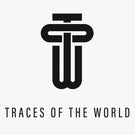Our Impact
Socio Economic Impact
Traces of the World is committed to a sustainable journey and our business model is rooted in a belief in the deep connection that exists between ourselves, our communities and our planet. The indigenous artisan communities are custodians of ancestral living traditions and the foundation of our value chain. By collaborating with these communities, the lives of the craftspeople and their families improves and ensure hand-weaving skills continue to survive. Our platform connects the conscious female consumer with the artisans behind the products. Long term, we’re building up a community of makers and consumers that will invent further sustainable solutions.
Environmental Impact
On an environmental level, we work towards a value-focused supply chain to reduce negative impact. Our artisans work with one of the world’s most sustainable textile manufacturing techniques, the ancestral loom. In addition, by producing clothes where the materials are mainly local sourced and by using natural dying processes, our makers’ environmental footprint is drastically lower than conventional manufacturing practices. Thoughtful production of durable, high-quality products means our stock is intentionally limited, but we retain the option to produce on-demand to avoid waste.
Cultural Impact
We work with heritage techniques In collaboration with artisan communities and focus on producing Limited Editions of slow-made clothing for the contemporary women. By honoring artisanship the lives of the craft people and their families improves and ensures hand-weaving skills continue to survive. Our vision traces the cultural diversity of the local heritage of the communities we source from, resulting in unique designs made with both traditional and innovative processes. With respect for the development of products, practices, and organisational models based on indigenous traditions and techniques, we hope to sustain cultures and revitalise traditions. Finally, we balance market needs with the cultural heritage, while creating sustainable and ethical working relations.


